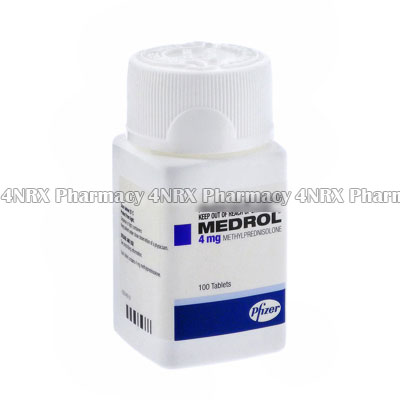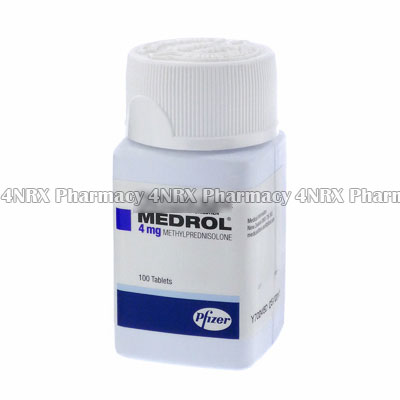 |
Home  Arthritis Arthritis  Medrol (Methylprednisolone) Medrol (Methylprednisolone) |
|
|||||||||
|
|
Medrol (Methylprednisolone)
What is Medrol (Methylprednisolone) used for? Medrol (Methylprednisolone) is a steroid prescribed to treat patients suffering from a variety of inflammatory conditions such as asthma, arthritis, severe allergies, skin conditions, lupus, or thyroid disorders. The medication operates by suppressing immune responses that cause swelling and discomfort. Your physician may also prescribe it to treat other conditions that are not listed here. How should I use Medrol (Methylprednisolone)? Follow your physician's instructions for using Medrol (Methylprednisolone) to get the most effective results from treatment. It is typically taken once each day, but your particular instructions will be determined by the severity of your symptoms and current health condition. Swallow the tablets whole along with a full glass of water. Never chew, crush, or split the medication prior to use as this may destroy or change the effects of the contents. Ask your pharmacist or physician if you have any questions about the medicine to ensure the correct use. What are the side effects of Medrol (Methylprednisolone)? Some patients using Medrol (Methylprednisolone) have reported experiencing side effects including:
Inform your physician if any symptoms become worse or if other serious side effects appear such as vision problems, depression, severe muscle pain, hypertension, low potassium levels, or pancreatitis. These conditions may require medical attention or changes to your treatment to prevent more complications from occurring. Please Note Strictly follow all instructions provided to you by your physician or pharmacist while using Medrol (Methylprednisolone). Optimum and safe dosage can differ based on the patient and the condition being treated. As this medication may be unsafe for certain patients, it is essential you always inform your physician if you are pregnant or breastfeeding, as well as if you have any allergies, other illnesses, or ongoing health conditions, especially high blood pressure, diabetes, eye diseases, kidney illnesses, liver disease or thyroid problems, and if you are taking any other form of medication, supplements, or herbal products. Immediately seek emergency medical care if you have any allergic or hypersensitive reaction. Common signs of a reaction include hives, swelling, skin rashes, chest pains, as well as trouble breathing or swallowing. 

|
||||||||||||||||||||||